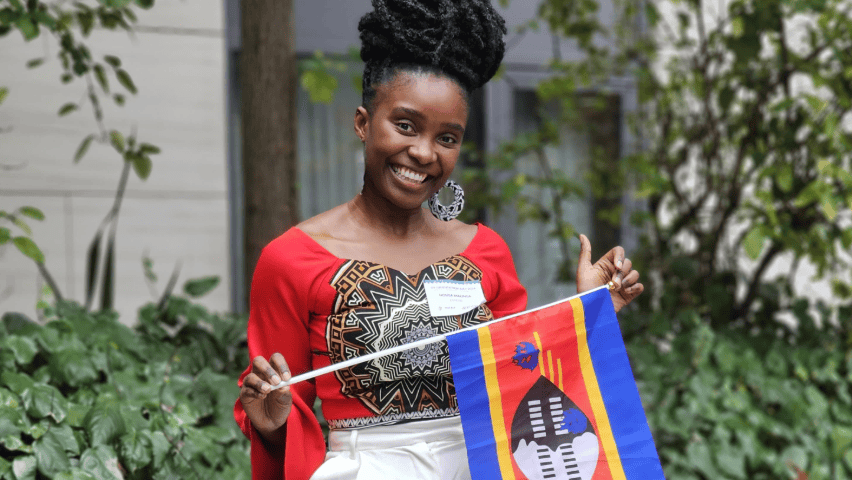Blog
30 October 2025
Nosisa Malinga | Dovida Ballsbridge
Nosisa’s upbringing in Eswatini has instilled a deep sense of respect and compassion that is rooted in the spirit of Ubuntu, “I am because we are.” We spoke with Nosisa about her upbringing and how a homegrown philosophy guides her in her work.

“Swazi culture emphasises compassion, communal support and the spirit of Ubuntu – ‘I am because we are’.”
How has your culture shaped you?
Swazi culture teaches that every person deserves dignity, respect and kindness especially the elderly. It emphasises compassion, communal support and the spirit of Ubuntu, easily translated as humanity towards others – ‘I am because we are’. From a very young age we are taught to speak politely, offer assistance and empathy. In homecare, this manifests as patience, active listening and genuine concern for a client’s needs and wellbeing.

“In Eswatini care is primarily family-centered. It is the cornerstone of social life”.
How is care valued in your country?
Care has no skin colour, race or origin. In Eswatini care is primarily family-centered. It is the cornerstone of social life, where elders, parents and extended relatives take responsibility for the welfare of the children, the sick and older family members. Care is valued as both a cultural and moral duty, deeply rooted in community-oriented traditions and the philosophy of Ubuntu stated above.

“In my role, I bring the key character traits of Ubuntu: Community and togetherness, compassion and service, respect and dignity”.
What aspects of your culture do you bring to your role?
So, when I wake up to go to work daily, to me it doesn’t feel like work, it almost feels like I am going out there to serve. It is my responsibility to look after the elderly, or those who are struggling. In my role, I bring the key character traits of Ubuntu: Community and togetherness, compassion and service, respect and dignity to others and a sense of belonging and hospitality.

“The sense of unity and pride that filled the air reminded me of how deeply connected we are as Swazi people.”
Can you share a story or memory from an important event in your culture?
One of the most memorable events from my culture is the Umhlanga Reed Dance, which I attended as a young woman. I remember walking with my peers, singing traditional songs as we carried our reeds high, feeling proud to be part of something so meaningful. The reeds we brought are used to reinforce the Queen Mother’s royal compound (a symbolic gesture showing our collective strength and respect for royalty). Later, we danced together in bright traditional attire, surrounded by the beating of drums and cheering crowds. The sense of unity and pride that filled the air reminded me of how deeply connected we are as Swazi people. It taught me the importance of community, respect, and purity, values which are still guiding how I relate to others. It was not just a festival – it was a living lesson in womanhood and belonging, showing how tradition binds generations through shared experience.


